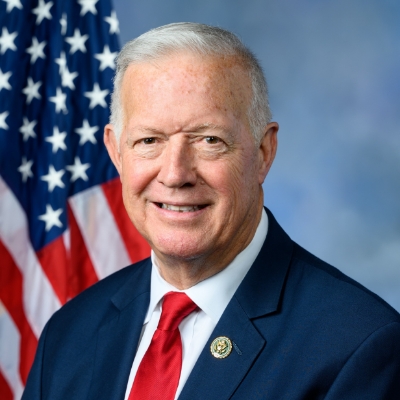- Home
- About
- Contact
- Services
- Art Competition
- Community Project Requests
- Congressional Commendations
- Flags
- Assistance with a Federal Agency
- Internships
- Military Academy Nominations
- Passports
- Presidential Greetings
- Tours and Tickets
- The Congressional Award
- Grants
- Water Resources Development Act 2026
- Additional Services and Resources
- Media
- Legislation
- Issues
- Resources
 U.S. REPRESENTATIVE
Randy Weber
Proudly Serving Texas' 14th District
U.S. REPRESENTATIVE
Randy Weber
Proudly Serving Texas' 14th District
Press Releases
Rep. Weber Introduces the Federal Mechanical Insulation Act of 2023
Washington,
July 14, 2023
Washington, D.C. - Today, U.S. Reps. Randy Weber (R-TX) and Linda Sánchez (D-CA) introduced the bipartisan Federal Mechanical Insulation Act (FMIA) of 2023 to ensure federal buildings are maximizing energy efficiencies, which results in taxpayer savings and emissions reductions. Mechanical insulation provides large-scale and long-term energy efficiency, emissions reductions, cost savings, and safety benefits at manufacturing facilities, power plants, refineries, hospitals, universities, and government buildings while creating thousands of American jobs, with nearly all of its manufacturing occurring here in the United States. “For 35 years, I owned and operated an air conditioning company, and I understand the importance of strategic federal energy conservation and efficiency measures,” said Rep. Weber. “This bill is not only commonsense, but a win for the nation’s energy preservation and will lower the burden on taxpayers forking over their hard-earned dollars to power federal buildings. I am proud to introduce this legislation, and I look forward to working with my colleagues on the Energy and Commerce Committee to ensure that a properly trained and qualified workforce is used to make the necessary improvements to federal mechanical insulation.” “As we continue efforts to bring down energy costs, reduce emissions, and protect our environment, energy efficiency has become a leading issue across the country. Still, mechanical insulation – a practical and helpful solution – is often overlooked,” said Congresswoman Linda Sánchez. “Mechanical insulation improves working environments, lowers energy costs, and increases the asset value of a building. It accomplishes all of this while creating tens of thousands of American jobs. This bill provides meaningful directives to the Department of Energy to ensure Mechanical Insulation is a focus of the statutory audits of federal buildings where appropriate. I am proud to support this legislation and build on the important work we started last Congress to promote sensible federal energy conservation and workforce measures.” Read the bill text here. Background: According to the Government Accounting Office ("GAO"), the federal government is the country's largest energy consumer, consuming more than 344 trillion btu of energy and 119 billion gallons of water in Fiscal Year 2021. Federal agencies are required by statute to conduct energy and water use evaluations and audits of federal facilities every four years to identify energy or water savings efficiency measures. The FMIA adds an important audit metric for regulators, including assessing federal buildings' measure of mechanical Insulation efficiencies. |
